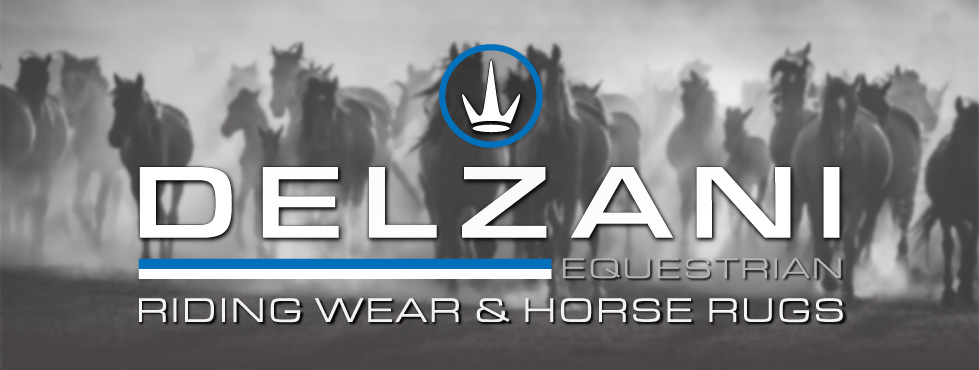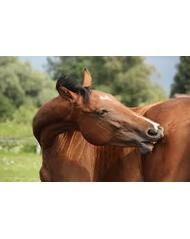What Can Horses Eat? Safe Fruits and Vegetables for Horses

Australian Horse Feeding Guide: Safe Produce and Portion Tips
Updated October 2025
A practical guide for Australian riders on which fruits and vegetables horses can eat, how much to feed, and when to avoid them.
Horses are natural grazers. In the wild, they would spend most of their time eating grasses and forage, which is why hay and pasture remain the foundation of a healthy equine diet. As horse owners, we often like to add a little variety - a crunchy carrot after a ride, a juicy apple on a hot day, or even a slice of watermelon as a summer treat. This guide explains which fruits and vegetables are safe, how much to feed, and what to avoid so you can offer treats with confidence.
What Fruits and Vegetables Can Horses Eat?
Many fruits and vegetables are safe for horses when fed in moderation, but others should be avoided. Use this quick reference as a starting point and always introduce new foods gradually.
- Safe fruits: apples (without seeds), bananas, pears, watermelon, strawberries, oranges (in moderation), grapes (cut in half).
- Safe vegetables: carrots, celery, cucumber, pumpkin, lettuce.
- Avoid: onions, garlic, potatoes, tomatoes, avocado, chocolate, and any mouldy food.
- General rule: treats should make up less than 10% of the total diet - hay and pasture always come first.
Why Moderation Is Key with Horse Treats
Treats are enjoyable, but horses have sensitive digestive systems designed for slow, continuous forage intake. Sudden changes, large portions of fruit, or excess sugar can trigger colic, diarrhoea, or laminitis. Keep portions small - a few slices or chunks is plenty - and use treats as occasional rewards rather than daily staples. At Delzani, we often give our own horses a few pieces of watermelon after long summer rides - a great way to cool down without upsetting the balance of their diet.
Safe Fruits for Horses
Fruits are often a horse’s favourite thanks to their sweetness and juiciness. They can also provide extra hydration in hot Australian summers. Offer small amounts of the following:
- Apples: Remove core and seeds; slice to reduce choking risk.
- Bananas: Soft and easy to chew; many horses will eat the peel.
- Pears: Core and seeds removed; serve in thin slices.
- Watermelon: Flesh and rind are safe; cut into manageable chunks.
- Strawberries: Wash well and feed sparingly due to natural sugars.
- Oranges: Some horses enjoy wedges (peel included); limit because of acidity and sugar.
- Grapes: Halve to avoid choking and feed only occasionally.
Safe Vegetables for Horses
Vegetables are generally lower in sugar and provide a satisfying crunch. Start with small amounts and watch for any sensitivity.
- Carrots: A classic, low-calorie snack; easy to chop for training rewards.
- Celery: High in water and fibre; chop into sticks to make chewing easier.
- Cucumber: Around 95% water; a cooling option in summer.
- Pumpkin: Feed fresh, raw chunks; avoid mouldy or processed pumpkin.
- Lettuce: Mild varieties like cos or butter are safe but not nutrient-dense.
Quick Guide: How Much to Feed
Even safe foods can cause problems if overfed. Horses don’t need a full bowl of fruit or vegetables to feel spoiled - a handful of small pieces is plenty. Remember that natural sugars add up quickly and can upset digestion. As a rule of thumb, keep treats under 10% of the diet and let pasture, hay, and balanced feeds do the heavy lifting.
- Portion: a small handful of slices or chunks per treat session.
- Frequency: a few times per week rather than every day.
- Balance: monitor weight, feet, and manure; reduce treats if you notice changes.
Supplements for a Balanced Diet
Fruits and vegetables are fun extras, but they don’t replace core nutrition. Horses that work in the Australian climate often need targeted support - especially for hooves, joints, electrolytes, and digestion. Supplements can help fill those nutritional gaps when used alongside quality forage and feed.
For example, electrolytes are vital in hot weather or during transport to replace salts lost through sweat. Joint and hoof supplements help maintain comfort and resilience in hard-working horses, while digestive blends support gut balance. Explore the Delzani Equine Supplement Range to find options that complement your horse’s daily diet and workload.
Frequently Asked Questions
Can horses eat watermelon?
Yes. Both the flesh and rind are safe when cut into manageable chunks, but feed in moderation.
What fruits or vegetables should horses avoid?
Avoid onions, garlic, potatoes, tomatoes, avocado, chocolate, and anything mouldy - these can be toxic or irritate the gut.
How many carrots are too many?
Carrots are safe, but still treats. A few sticks or slices per session is enough; keep total treats under 10% of the diet.
Important Disclaimer
This article offers general information only and doesn’t replace veterinary advice. Every horse is different; always consult your vet before introducing new foods or changing the diet, especially if your horse has medical conditions or is prone to laminitis.
Final Thoughts
Horses love variety, and safe fruits and vegetables can enrich their routine and strengthen your bond. Whether it’s apple slices after a ride, watermelon in summer, or a crunchy carrot, the key is moderation, balance, and awareness of what’s safe for your individual horse.
Looking for more ways to keep your horse healthy and comfortable in Australian conditions? Explore Delzani’s premium horse rugs, fly masks, and grooming brushes - thoughtful essentials that pair perfectly with smart, safe feeding.
Written by Jane Griffiths - An experienced Australian horse owner and product developer with over three decades immersed in equestrian life. Jane has spent years refining horse rugs, tack, and riding apparel to better suit Australian climates. She has enjoyed countless weekends at gymkhanas, show jumping events, and pony club competitions with her daughter, and still loves hitting the trails with friends whenever she can. Her lifelong passion for horses and hands-on understanding of equine comfort continue to shape her practical, rider-first approach to horse care and product design.
Related Equestrian Guides
Horse Wormers & Treatments
Every rider wants their horse to look, feel, and perform at their best. Delzani horse wormers make it easy to protect your horse from internal parasites, with trusted products riders across Australia rely on.
Equine Nutrition & Supplements
Delzani's range of horse nutritional supplements is specially designed to support your horse's health and performance. Whether you're looking to enhance your horse's diet, provide joint support, or use calming supplements, we have you covered at Delzani
Managing and Preventing Queensland Itch in Horses
Banish the Itch: Managing and Preventing Queensland Itch in Horses
Keep Your Horse Cool: 10 Proven Tips this Summer To Beat the Heat
Hot Aussie summers test every rider. From hydration and electrolytes to fly protection and summer rugs, these 10 proven tips keep your horse cool, comfortable, and safe when the heat is on.










